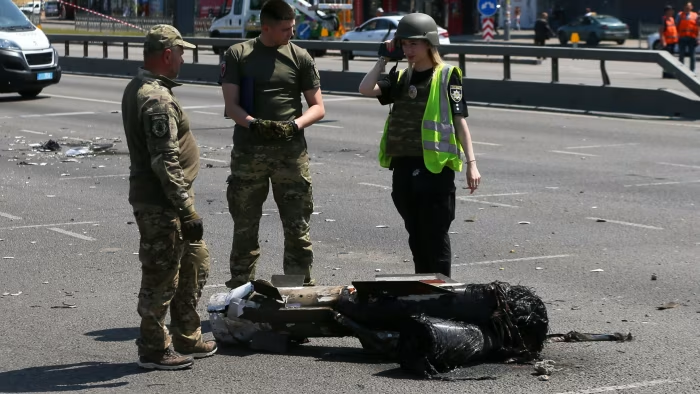Military Goods Exports
Turkey has reportedly taken steps to block the export of military-linked goods to Russia, following warnings from Washington.
According to the Financial Times, this decision was made discreetly, without a public announcement, due to the politically sensitive nature of the situation.
The move indicates a significant shift in Turkey’s approach, especially considering its earlier role as a key supplier for Russia amid Western sanctions.
Sources with direct knowledge of the matter revealed that a senior U.S. export controls official visited Turkey in August, issuing stern warnings about potential “consequences” if Turkey continued to supply battlefield goods to Russia.
This visit seems to have influenced Ankara’s recent decision to restrict these exports, which had previously surged since the onset of Russia’s invasion of Ukraine.
As part of the restrictions, Turkey’s electronic customs system has begun preventing shipments of essential components used in military applications.
These include processors and memory cards found in Russian missiles and drones, as well as various machine tools and equipment vital for weapon production.
The affected items are categorized as U.S.-origin “battlefield goods,” encompassing over four dozen types of equipment deemed critical for Russia’s arms industry.
In the wake of these changes, Turkish exports of sensitive military goods to Russia saw a notable decline, dropping to $4.1 million in August from a high of $38 million in December 2022.
Prior to the recent restrictions, exports had surged to approximately $3 million a month at the beginning of the Ukraine conflict.
Despite the new export curbs, some of these battlefield goods are believed to be rerouted from Turkey to intermediary countries, such as Kazakhstan and Azerbaijan, which may then supply them to Russia.
Notably, the Turkish restrictions do not extend to exports destined for these intermediaries, allowing for some continued trade in sensitive military items.
Meanwhile, China has emerged as a dominant player in the supply of these high-priority goods to Russia, reportedly exporting $377 million worth of such items in July alone.
This situation highlights the shifting dynamics of military supply chains amidst ongoing geopolitical tensions and the evolving relationships between nations as they navigate sanctions and trade restrictions.
As Turkey recalibrates its position, the international community will be closely monitoring its actions and their implications for the ongoing conflict in Ukraine and the broader geopolitical landscape.
I am a dynamic professional, specializing in Peace and Conflict Studies, Conflict Management and Resolution, and International Relations. My expertise is particularly focused on South Asian Conflicts and the intricacies of the Indian Ocean and Asia Pacific Politics. With my skills as a Content Writer, I serve as a bridge between academia and the public, translating complex global issues into accessible narratives. My passion for fostering understanding and cooperation on the national and international stage drives me to make meaningful contributions to peace and global discourse.










